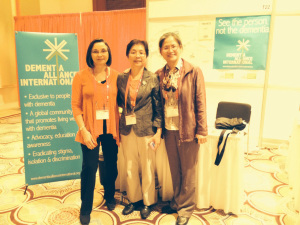This post is from Dementia Alliance International (DAI), who promote education and awareness about dementia. The original text may be slightly modified for this post.
Kate Swaffer’s keynote speech highlights some of the most relevant issues in dementia care and living with dementia: the need to address the individual, not just their symptoms; human rights issues; balance in dementia research funding; rehabilitation and palliative care in dementia care plans; better diagnostics; delaying institutionalization; inclusion; breaking stigma – I mean, wow, she really gave a great speech! She also touches on two other important topics: psychosocial stimulation and maintaining work and contribution to society, mentioning her own experience and drive to continue contribution through advocacy.
She is a champion in breaking down stigma and raising awareness for people with dementia, particularly young-onset dementia (before age 65). Head on over to her website, have a read, and sign up to follow her.
